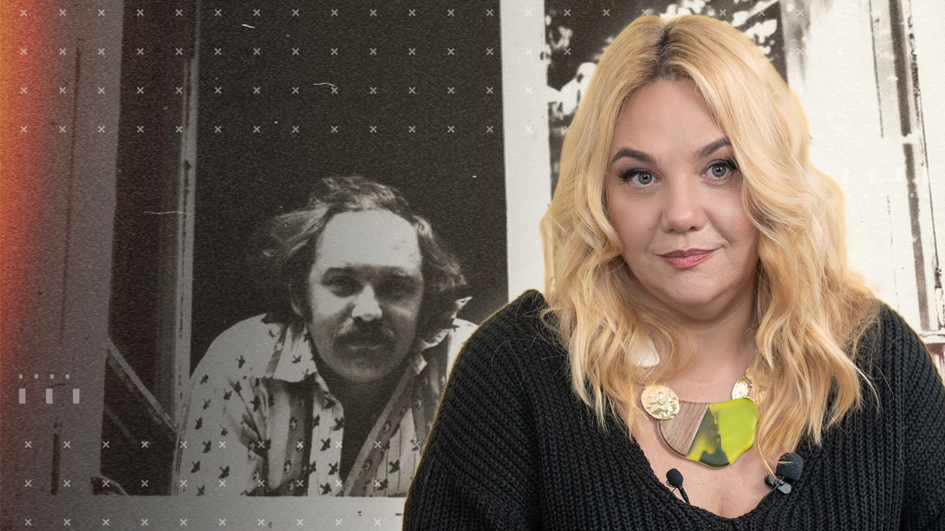
«Wars begin due to the lack of nurture,» – Solomiya Chubai
[For urgent updates please follow Ukrainian Freedom News on Telegram]
Solomiya Chubai, a singer, art manager, and volunteer. What was special about your last six months?
I’ve been fleeing from volunteering since it all began, because when you look at Serhiy Prytula, you get the impression that you’re doing nothing. What are your eight or ten cars compared to what he does? I had a genius dad, and I have a genius brother [Solomiya’s father, Hrytsko Chubai, was a Ukrainian poet, repressed by the Soviet government; her brother, Taras Chubai, is a famous Ukrainian rock singer, frontman of «Plach Yeremii» (Jeremy’s cry) band]. I’ve always had a very high bar to reach, so it’s difficult for me now to volunteer, because people like Prytula do much more.
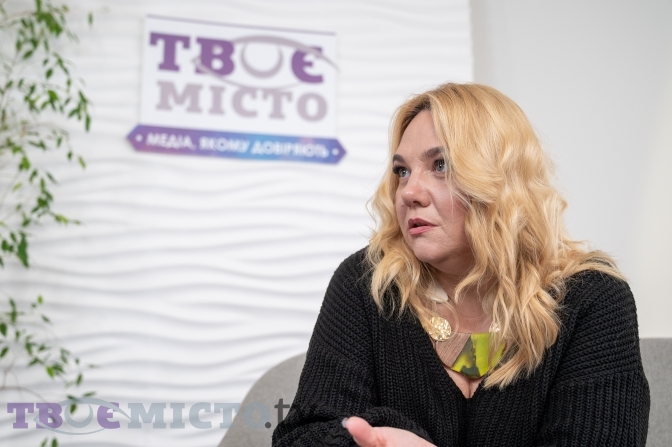
But every day, when I look at my Telegram and WhatsApp in the evening, I see a story, a photo or a video, and realize that actually, I’ve already sent a lot [of aid]. I am proud of Ukrainians, and I think that when they say we are tired, it’s not true.
For many Ukrainians, the 1980s were a kind of golden age. But the story of your family is the one about people who suffered and was killed by that regime. How are we to deal with the remnants of this Sovietism, which is still present in our country?
When the first photos from Izyum appeared, we, after Bucha, realized that this was a regularity. My dad was destroyed when he was 33 years old. He was tortured [by the Soviets] at the same time as Stus, Horyn’, Kalynets family, and my family lived at that time.
My brother, Taras Chubai, remembers the searches, even though he was still a child then. He remembers the house that was dug up and his father who was beaten and taken to the jail. And now, my brother looks at his broken yard in Hostomel and saves his children from the bullets. He saw it in 1972 and sees it in 2022.
Read also: «We wouldn’t perform Chekhov,» – a school theatre play that’s raising funds for Ukrainian aviation
The behaviour of the Russians was not a discovery for me, because they always destroyed Ukrainians. I advise you to learn history by heart starting from the Cossacks, who were destroyed by Catherine II, finishing with the Holodomor.
We just have to remember how the Russian soldier got here. Why is there such a problem with Donetsk, Luhansk and Kharkiv? They destroyed the entire intelligentsia. They were just trying to pull out those roots.
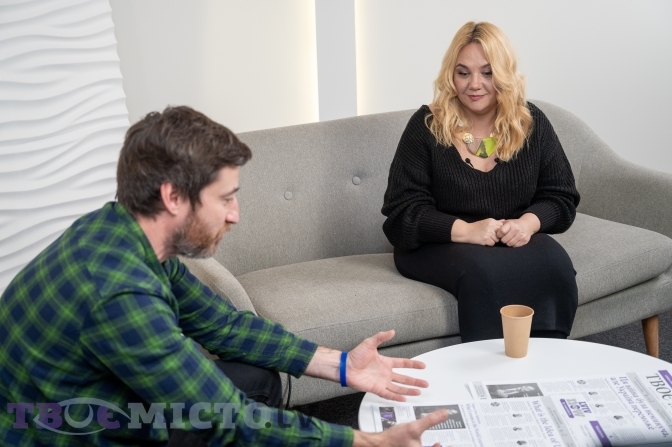
At one time, my father tried to stay in Kyiv, but he was not allowed to do so. He was well hosted in Lviv by Chornovil and Kalynets family.
My surname is «Hetman». That is, we are from the Cossack family. And when I made the film about my dad «Chubai. To speak again» together with Mykhailo Krupievskyi, it took three years and many revised archival documents.
One film featured the story of the OUN-UPA (Organisation of Ukrainian Nationalists and the Ukrainian Insurgent Army). And the Cossacks. My father studied Cossack culture, we even had Cossack sabers at home. He was always a Cossack with a forelock in the photographs. Already at the age of 15, he created a literary circle, where they read the banned works of Khvylovyi, Pluzhnyk, and Semenko. At the age of 15, he was arrested for the first time in his own village. His girlfriend handed him over to the Soviets.
When was the first collection of poems published?
It was a collection «Speak, be silent, and speak again.» Mykola Ryabchuk contributed to this. If I’m not mistaken, it was in the 1990s. At that time, I lived in a boarding school in Munich, which was called the «Free School». I know that it was very difficult for Ryabchuk then, everything was to be edited.
Whose poetry was banned, and were there party poets who received awards?
We had Bazhan, Mykola Petrenko, Lubkivskyi, Bohdan Stelmakh like that.
But the emphasis in this story hasn’t been set yet. They can be nearby, in the textbook.
I understand well how Tychyna felt at that time. I have a discussion about him on YouTube. Early Tychyna and late Tychyna are poets broken by the system. I personally know the Lubkivski, Stelmakh, Petrenko families, and here is my dad, who was never allowed to work. He worked at a vegetable base, unloading rotten vegetables. At night, he painted posters and unloaded wagons.
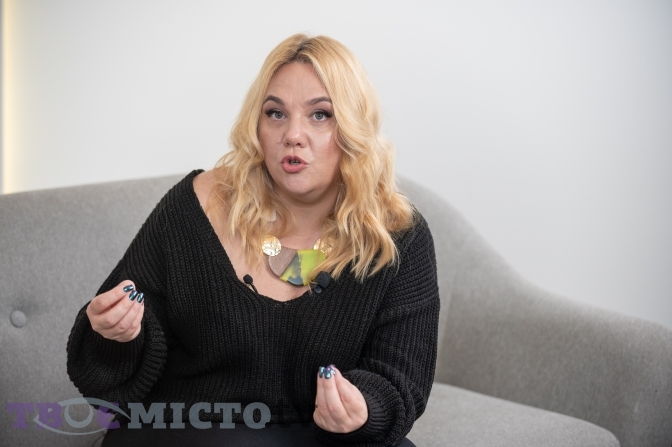
Meanwhile, there were poets who worked in some positions, who were allowed to publish their works and knew how to speak with this system. But I have no right to condemn them. When I made a film about dad, I imagined that the KGB came, aimed a revolver at the pregnant mother and presented the father with a choice: «Either you say something and sign under these words, or we will kill her»... Still many people do not realize this. This is frank cruelty, sadism, which they have always had.
How to fill this gap, which has formed in the place where something Russian used to be earlier, and which the lion’s share of Ukrainians experience?
To fill this gap, you need to have a desire. And if it’s not there, then... I was struck by the fact that when I went to my boyfriend from the 28th brigade on the front line, they turned on Russian rap in the car. I asked if they were crazy: are you fighting Muscovites and turn on Russian rap?! I understand that the intelligentsia gives importance to this, but there are people for whom it is just a background.
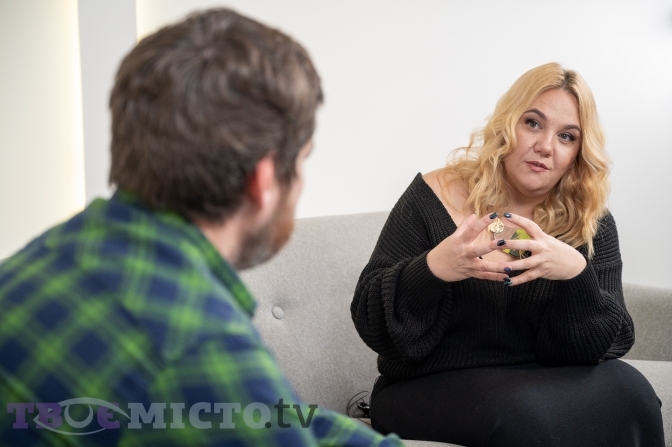
Context is always important to me – the words and music they carry. And since I myself write music, do big music projects – I am aware of this.
It is necessary to understand that there are different people. For someone, just noise is important, for me it’s the depth. My brother used to beat me when I listened to American pop music in my youth. But it’s thanks to him that I owe a musical palette. I chose between classical opera and quality classical music, rock music, grunge. I learned to listen to the lyrics.
It happens in different ways. But we have to understand that in the war, these people who are on the front lines are so different. They don’t listen to context – they catch sincerity, they hear whether you love them or not. It’s like with children with autism, (I have a son with autism, so I know what I’m talking about).
People with fake emotions can’t work with them, because these children feel it. Even the one who wants to do PR around them will not be able to stay there for a long time, because such children will not accept him. I think the same thing is happening to our boys and girls on the front lines. They see things we have never dreamed of. And all we are left with is the pure emotion of love and compassion.
I think we are moving towards the light. And when we understand the structure of the universe, love, acceptance, hearing and being heard, it seems to me that all things will be left out of context. Because everything I struggle with in my project is the fact that I lived in the «cocoon» of intellectuals. But Ukraine is much wider, as the war has shown. Not everyone knows Andruhovych, Prokhasko, and Chubai.
Doesn’t that mean they are unimportant?
They are very important. The problem of our ministers of culture and our state is that they do not accept what has already grown on Ukrainian soil, they do not elevate it.
For many years, I was the chairman of the board of the artistic association «Dzyga» in Lviv, from 2003 to 2021. We created very cool art projects that educated certain young people. Since 1998, «Dzyga» has nurtured «Okean Elzy», Ruslana, and «Mertvyi Piven» bands. A generation grew up on their music.
This is a huge layer of work. It seems to me that the problem of our state is that officials sometimes do not understand this. Go-A had several hundred views on YouTube before Eurovision, and after that, they became super popular, and all the doors started opening for them.
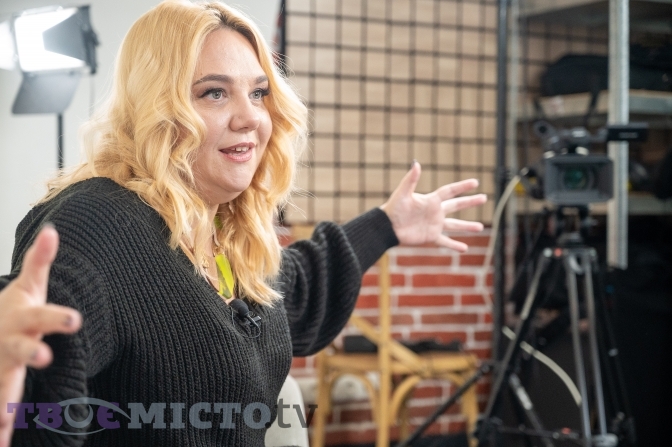
The same was once the case with «Okean Elzy» and «Boombox»: the former went and sang something in Russia, and it became popular, and the latter recorded a track for some popular Russian TV series. Ukrainians, learn to appreciate the here and now! Until someone says that someone is cool, no one will hear about these authors.
It seems to me that we, Ukrainians, have a problem that we do not appreciate people immediately, without exaltation. We are human and we make mistakes, and when we realize that, everything will change.
Is it Sovietism, when for the highest merits to the people, the state can award cultural figures with the title of the hero?
There is such a thing. This happens instead of giving that person airtime on radio or television, or supporting, or talking about that person.
We artists are in a very bad situation right now. We don’t have that support. Now, the Ukrainian Cultural Fund has again cut funding. I can’t understand where we are going, because it seems to me that it is obvious that wars start because we do not nurture, as my dad wrote in «The Nativity» about the «thinking breed».
It seems to me that our key leaders of the country have this «Sovietness» in their heads. Many of those who grew up further east are children of the Soviet Union.
Maybe it makes sense to agree that during some conditional transition period, people who grew up in the Soviet environment should not be put in positions that involve responsibility for humanitarian policy?
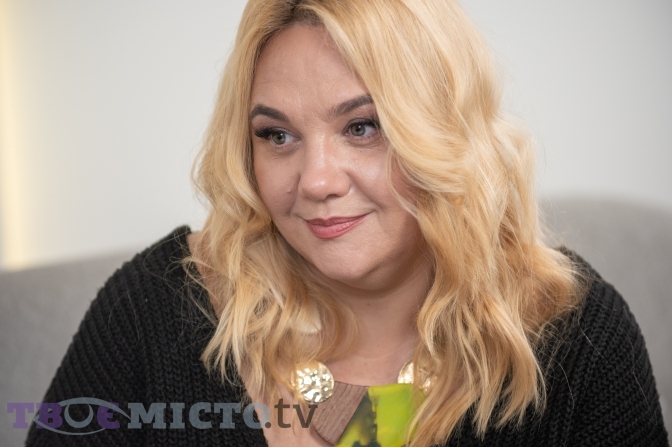
What struck me at one time in Kyiv was the popularization of coffee shops with Soviet telephones, flags, the hubsstyled as apartments of the Soviet era. Drinking beer from half-liter glass cans like alcohol addicted Soviet people, tables from the 60s and 70s, carpets, scary cabinets...
It used to be that before the war, young people already wore ties. It was in Kyiv and Kharkiv, where there were these hubs and restaurants at every turn. And there, they did not understand my indignation, because for me, the «Sovietness» worked as a trigger, it was some kind of horror.
I am very lucky that we are an artistic family, that Soviet Lviv passed us by. We had antique furniture, paintings of Trush, good books. We managed to save it. But for 80% of the population, the typical decoration of the residence was the Soviet furniture.
I have a mother-in-law with whom I always quarreled. Because when I came to her in Dolyna [town in the Ivano-Frankivsk region in the west], she told me how handsome Stalin was, how well everything was ordered. They always asked me why my dad was «rushing».
And we have such Ukrainians now. It’s like two different shores. You can wander around in the illusion that we are influencing something, that we are such an advanced thinkers. But there are people who simply despise it, because it was cool for them anyway.
So what are we fighting for?
Now it is already clear why. Now it is out of the question. We are fighting because no freedom can be given as easily as it was given to us in 1991.
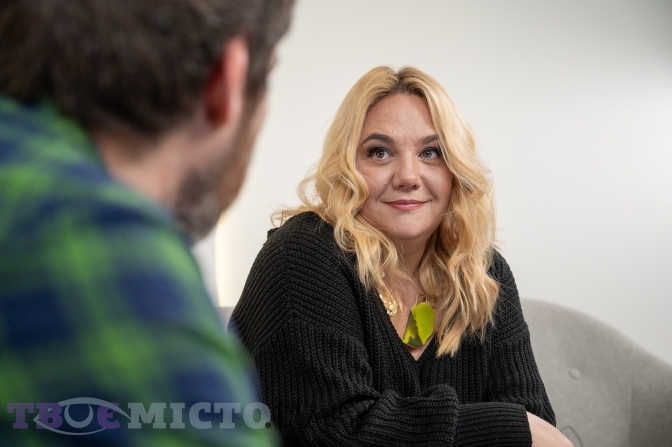
Unfortunately, Ukrainians know how to appreciate only the dead or what is given due to great pain and loss. Let’s look at our modern Ukrainian authorities, which earlier were openly pro-Soviet: they started talking about the Holodomor, took the history of each city, what the Soviet authorities did there. Therefore, it seems to me that this war is not about silencing history.
It seems to me that we have finally undermined this Soviet army, which was considered «liberators», and finally started talking about Vasyl Stus [Ukrainian poet, repressed by the Soviet regime]. Finally, being from Bandera is worthy in the eyes of Ukrainians from the east.
This war is for us to dispel all these stereotypes finally. This is a global war that is changing the world. Everyone has been very comfortable in a certain area, and it is finally falling apart.
It was very convenient for the world that there were Nazis and fascists. Okay, they admitted it at the Nuremberg Trials. It’s very cool. This is what Russia still cannot admit. It’s a classic abusive psychopath who likes all bloody things.
Now, our task is not to get back to the state of the victim, under any circumstances. Each of us had a victim and an inferiority complex before. It did not arise in a flat place. In order to survive, we ourselves, after all, covered up the history of the disease of our ancestors. In some places, they simply stopped talking about the fact that one of their relatives was in the Ukrainian People’s Republic, and even more so in the Ukrainian Insurgent Army.
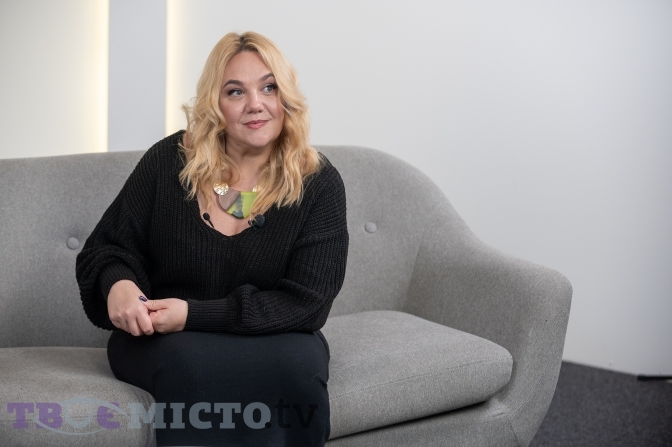
But the victim survives, it does not live. Now is a cool time, but very scary in view of the events in Bucha, Hostomel, and Izyum. We show all this to the world. But now we say that this has always been the case, that Muscovites have always done this to us. Saint Petersburg is built on the bones of the Cossacks...
I was very impressed by Odesa. When I went to the front line, all the monuments were covered with sandbags. And only Katherina II begs that Russians shell it finally. It seems to me that Odessans themselves have already understood that Katherina is a sorrow.
And what if the people of Lviv wanted to erect a monument to Maria Theresa, say, in the center of Lviv?
It seems to me that this is the same as if the Germans put up monuments to Hitler everywhere. The same thing.
I work with families who have children with autism. And when the father is an abuser, beats the wife and her child, but you tell that woman that «he beats, it means he loves» [Russian proverb] – then you support sadism and humiliation.
When Ukrainians stop being victims, we will start talking like it is, we will stop tolerating it. Russia upholds the memory of Lenin and Stalin, and they become heroes for Russian children. So, these children think that the Holodomor is normal, beating your wife like Stalin did is also normal, abusing your children is normal. Their hero is Putin, who does not recognize his children, and that’s okay too.
They grow up moral bastards. And those bastards beget bastards, because the values they espouse are terrible. And these people, 19-20 years old, come and rape a four-year-old girl here in Hostomel or Bucha...
I taught my niece to love, to learn a Ukrainian song, to be polite. Then a person with different values comes and says that he can rape her and take away her house. This is the same as the advice given in the West that Zelenskyi should give up the lands claimed by Russia. There, they do not understand that when an abusive psychopath enters your house, he simply takes everything, your body and soul. You are left with nothing. And when you are left with nothing, he goes to the neighbouring house. It is like a fire that spreads from house to house.
Is there any good news in this story?
Of course. It’s that our defenders are standing there and not letting it get here. Now we are being born as a political nation, spreading our wings and becoming an army of Light.
We have our own heroes, we don’t need to look abroad to import heroes. People begin to love and appreciate Ukrainian. We’ve had much more positives since February than there were in all 30 years of independence.
Andrii Saichuk spoke
Text: Roman Tyshchenko-Lamanskyi, translated by Vitalii Holich
Photo: Ivan Stanislavskyi
Full or partial republication of the text without the written consent of the editors is prohibited and considered a violation of copyright.
Follow us on Facebook and Instagram. Lviv Now is an English-language website for Lviv, Ukraine’s «tech-friendly cultural hub.» It is produced by Tvoe Misto («Your City») media-hub, which also hosts regular problem-solving public forums to benefit the city and its people.


